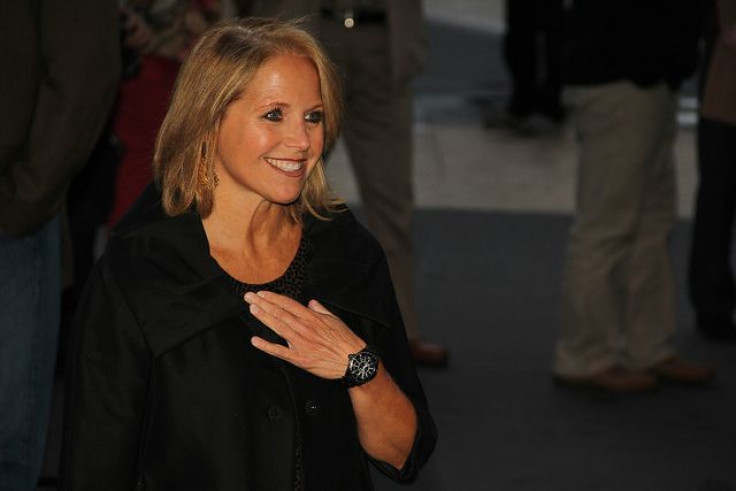Katie Couric’s Controversial HPV Vaccine Episode: Did The Host Spew Anti-Vaccination Ideas Or Facilitate Discussion?

An episode on Katie Couric’s daytime talk show, Katie, which questioned whether teens and pre-teens should receive vaccination for the human papillomavirus (HPV), drew criticism before it even aired this past Wednesday. Seth Mnookin, author of The Panic Virus: The True Story Behind the Vaccine-Autism Controversy, wrote a post on PLOS Blogs accusing the show of siding with anti-vaccination theorists in the days leading up to the actual episode. And, while some — like Jezebel, for instance — said the show didn’t live up to its controversial hype, others said Couric’s guests jeopardized the safety of millions of people by making it seem like not getting the HPV vaccine was a viable and possibly life-saving alternative.
“Despite the attempt at balance, I think most viewers will be left with the impression that the vaccine is dangerous and that its benefits don’t outweigh its risks — a conclusion that is not shared by the American Academy of Pediatrics, the American Academy of Family Physicians, the American College of Obstetricians and Gynecologists, or the Centers for Disease Control & Prevention,” wrote Matthew Herper of Forbes.
Herper argues that Couric’s show downplayed the effectiveness of the vaccine, overplayed the effectiveness of pap smears, didn’t stress the connection between HPV and cancer, and used emotional viewer testimonies to foster the view that the vaccine could either be deadly or cause major health complications. According to the Centers for Disease Control and Prevention (CDC), approximately 79 million Americans, most of whom are teens and young adults, are infected with HPV. About 14 million people contract the virus each year. The HPV vaccine, which was introduced in 2006, is recommended for girls and boys between the ages of 11 and 12. It is given as a series of three shots over a six-month period.
HPV is considered a sexually transmitted infection (STI) because it is transmitted primarily through skin-to-skin contact, which includes sexual intercourse, anal sex, and oral sex. While HPV can cause genital warts like other STIs, it is considered especially dangerous because of its link to genital and other serious cancers.
Herper is within his right to believe that Couric’s HPV vaccine episode may have swayed parents and children who are deciding on whether to vaccinate against vaccination. But the fact remains that, although many different organizations and medical professionals recommend it, some families and patients do believe that the vaccine has had adverse effects. In November, for instance, Wisconsin sisters Madelyn and Olivia Meylor filed suit claiming that the HPV vaccine Gardasil caused them to go into early menopause and may have made them infertile. And Emily Tarsell, who was profiled on Couric’s show, claims that her daughter was killed by a reaction she had to the vaccine. Those stories, though scary, also needed to be told.
At the end, in hopes of finding a balance, Couric recommended that everyone do their research and find a decision that works best for them.



























